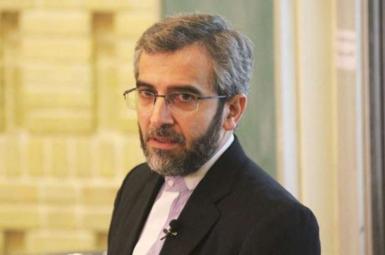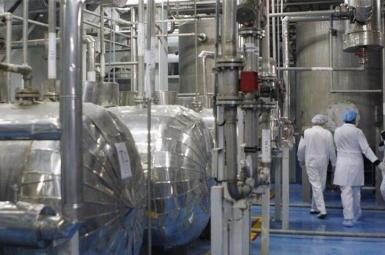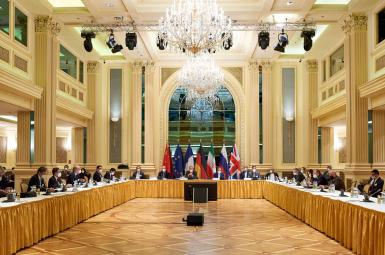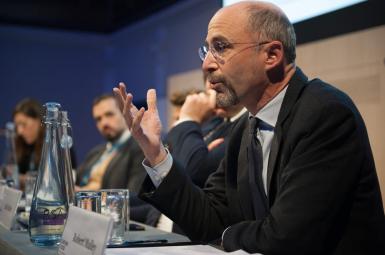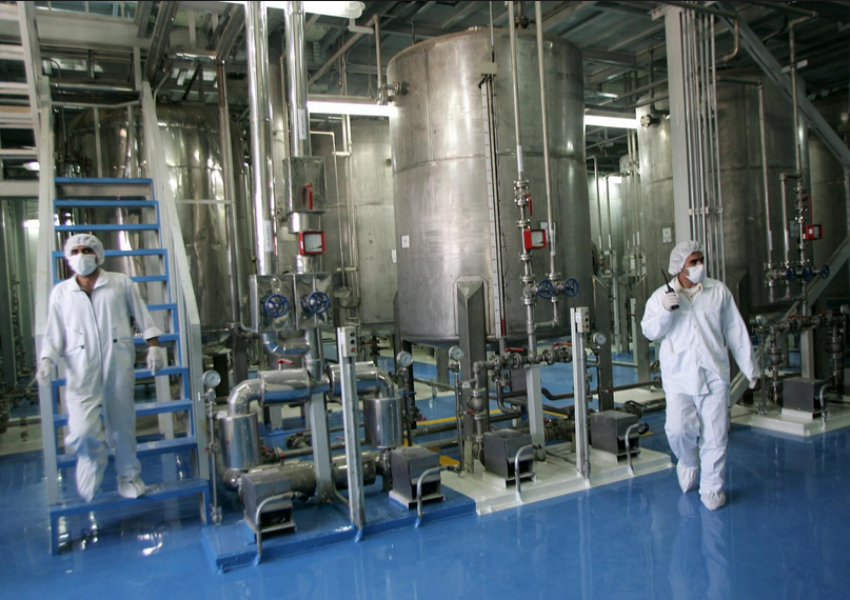
Iran May Extend UN Access To Nuclear Sites If Vienna Talks Are 'On Right Path'
Speaking to reporters on Monday, Iran's foreign ministry spokesman Saeed Khatibzadeh said Iran might agree to extend a temporary agreement with the International Atomic Energy Agency, due to expire May 21, over inspectors’ access to Iranian nuclear facilities. Khatibzadeh said this could be done if talks with world powers in Vienna were on “the right path.”
The talks center on which sanctions the United States needs to lift and which steps in Iran’s nuclear program should be reversed in order to revive Tehran’s 2015 nuclear deal with world powers, the JPCOA (Joint Comprehensive Plan of Action). IAEA access to Iran’s atomic facilities is currently takes place under the terms of a three-month scheme agreed in May. It is not clear whether the scheme is part of the Vienna talks, nor whether Tehran intends to use its expiry on May 21 as a form of pressure.
"Definitely one of the choices is to extend the May 21 deadline if both sides are in the right path and Tehran agrees,” Khatibzadeh told reporters. “Obviously, the negotiation team does not make the decision and all decisions are made in Tehran.”
Abbas Araghchi, Iran’s leading negotiator, told Japan's NHK Friday that Iran hoped there would be no need for extending the agreement, but said Tehran would consider it "at a proper time" if needsbe. The previous day, Araghchi had met with International Atomic Energy Agency (IAEA) chief Rafael Mariano Grossi. If the agreement lapsed, IAEA inspections would be those required of Iran under the Nuclear Non-Proliferation Treaty.
But the prospect of extending the temporary agreement may have alarmed Mojtaba Zolnour (Zonnoor), chairman of parliament’s national security and foreign affairs committee. Zolnour told Tasnim News Agency on Saturday that if talks failed, dropping the agreement would be Iran’s “first step.”
The May 21 deadline was set during Grossi's visit to Tehran on February 21 after Iran’s parliament passed a bill that would from February 23 reduce IAEA inspectors' access to Iran's nuclear facilities. The Atomic Energy Organization of Iran (AEOI) agreed three-month arrangements, including allowing IAEA cameras to operate in atomic facilities, giving time for talks on reviving the JCPOA, with Iran retaining camera footage and passing it to the IAEA in the event of the JCPOA being implemented and US nuclear-related sanctions lifted.
The parliament’s move followed the November 27 killing of Iranian nuclear scientist Mohsen Fakhrizadeh, widely attributed to Israel, and was part of Iranian efforts by December to incentivize the incoming Biden administration to lift crippling sanctions imposed by the Trump team after the 2018 US withdrawal from the JCPOA.
Khatibzadeh reiterated that Iran was in no rush but would not allow the talks to become "attritional," echoing the collective approach emphasized in Supreme Leader Ali Khamenei's warning of April 14. The spokesman’s stress on decisions being made in Tehran also recalled to Khamenei's remarks in a speech on May 2 that the foreign ministry did not alone determine foreign policy, which was done by "higher ranking officials.”


